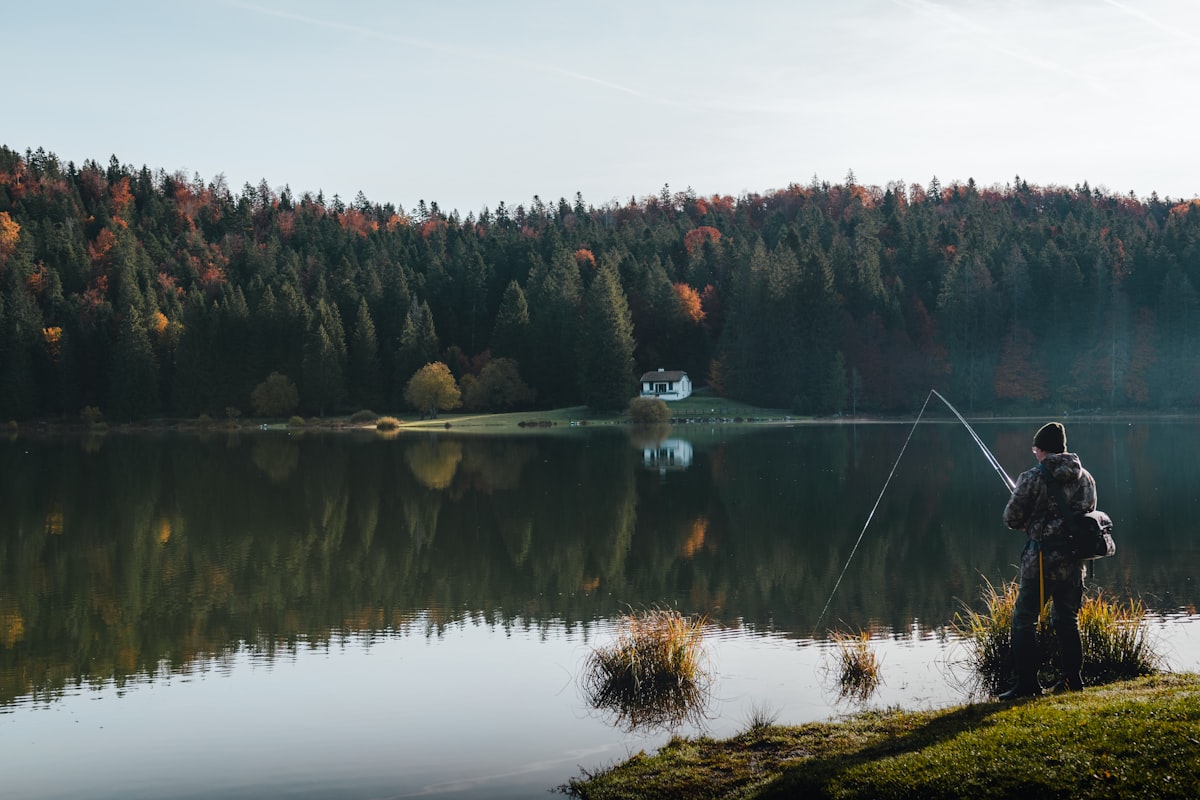Understanding the West Virginia DNR Fishing License
The West Virginia Division of Natural Resources (DNR) manages the state’s vast aquatic resources. To fish legally in the state’s waters, anglers need a fishing license. This tool helps conserve aquatic habitats and maintain ecological balance. Here’s what you need to know about obtaining a fishing license in West Virginia.
Why a Fishing License?

A fishing license is more than just a piece of paper. It funds conservation efforts and environmental stewardship. The fees collected support wildlife management, habitat development, and educational programs. Without this funding, maintaining the rich biodiversity in West Virginia’s waters would be challenging.
Who Needs a License?
Most people fishing in West Virginia require a valid fishing license. Specific exemptions apply. Residents under 15 and those aged 65 and older don’t need a standard fishing license but must carry proper identification. Active-duty military personnel on leave and certain veterans enjoy exemptions or reduced fees. Always check recent regulations as exemptions may change.

Types of Licenses Available
West Virginia offers several fishing licenses tailored to different needs:
- Annual License: Valid for the calendar year, this is the most common license.
- Junior License: Available for residents aged 15 to 17, offering discounted rates.
- Senior License: Reduced fees for residents 65 and older.
- Nonresident License: Options for visitors ranging from a day to a full year.
- Trout Stamp: Required for those fishing for trout.
- Combination License: Allows fishing and hunting.
How to Purchase a License
Buying a fishing license is straightforward. Licenses can be purchased online through the West Virginia DNR website. This is a convenient option for many anglers. Retail locations such as sporting goods stores or Walmart also sell licenses. Having access to both online and in-person options ensures accessibility for everyone.
Resident vs. Nonresident Licensing
Significant differences exist between resident and nonresident licenses. Residents benefit from lower fees. To qualify, one must live in West Virginia for at least 30 days prior to applying. Proof may be required, like a driver’s license or utility bill. Nonresidents face higher costs but have flexible options catering to short visits.
License Fees and Validity
License costs vary based on type and duration. Average rates for residents are around $19 for an annual license. Seniors and juniors enjoy reduced fees. Nonresidents might pay about $37 annually. Daily licenses for non-residents offer an affordable way to enjoy a weekend fishing trip. Ensuring you have a valid license avoids hefty fines and contributes to environmental conservation.
Special Considerations for Trout Fishing
Trout fishing in West Virginia requires a special stamp. The state stocks trout in various water bodies, offering plentiful opportunities for anglers. The additional fee collected through the trout stamp goes towards stocking programs and habitat restoration. Always check if the waters you’re fishing in are designated trout areas. Failing to have a trout stamp can result in penalties.
Important Regulations and Seasons
Fishing regulations aim to protect species during vulnerable periods. Fishing seasons dictate when certain fish can be caught. For instance, trout season has specific opening dates. Knowledge of species-specific regulations is crucial. Certain fish have size limits or creel limits to ensure sustainable populations. Breaking regulations can lead to fines and harm the ecosystem. Always stay informed about the current regulations.
Conservation and the Role of Anglers
Anglers play a crucial role in conservation. By purchasing a fishing license, you’re supporting efforts to maintain West Virginia’s natural beauty. Responsible fishing practices further contribute to sustainability. Catch and release programs and proper waste disposal help preserve habitats. Each angler’s actions collectively impact environmental stewardship.
Resources for Anglers
West Virginia DNR provides valuable resources to anglers. Online guides offer insights into fishing locations, regulations, and license information. Workshops and programs educate on conservation and fishing techniques. Engaging with these resources enhances your fishing experience and ensures compliance with regulations. Stay updated with the latest information through the DNR’s website or outreach programs.
Common Questions About West Virginia Fishing Licenses
Do I need a separate license for fishing in West Virginia state parks? No, the fishing license you’re required to obtain covers both public waterways and state park lakes.
Can I use my West Virginia fishing license in neighboring states? No, fishing licenses are typically state-specific. If planning to fish in neighboring waters like Virginia or Kentucky, you’ll need to purchase a license from that state.
Are discounts available for group fishing activities? The DNR does not generally offer group discounts. However, some local events or organizations might provide opportunities for community or educational discounts.
Can my fishing license be revoked? Yes, violating regulations such as illegal catches or fishing in restricted areas can result in fines and license revocation.
Recommended Fishing Gear
Garmin GPSMAP 79s Marine GPS – $280.84
Rugged marine GPS handheld that floats in water.
Garmin inReach Mini 2 – $249.99
Compact satellite communicator for safety on the water.
As an Amazon Associate, we earn from qualifying purchases.




Subscribe for Updates
Get the latest articles delivered to your inbox.
We respect your privacy. Unsubscribe anytime.